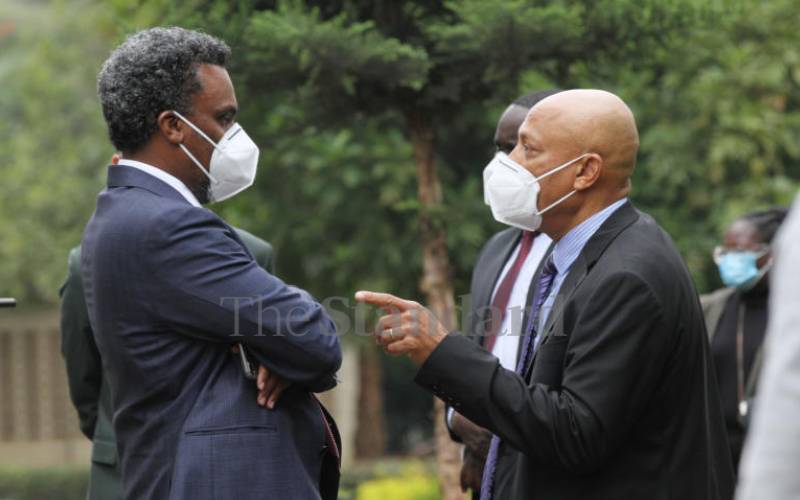×
The Standard e-Paper
Fearless, Trusted News

DPP Noordin Hajji (left) and EACC CEO Twalib Mbarak, July 28, 2020. [Elvis Ogina, Standard]
The electoral commission, anti-graft agency and Director of Public Prosecution (DPP) have indicated that it will be difficult to bar aspirants tainted with corruption from seeking elective posts in the next General Election.